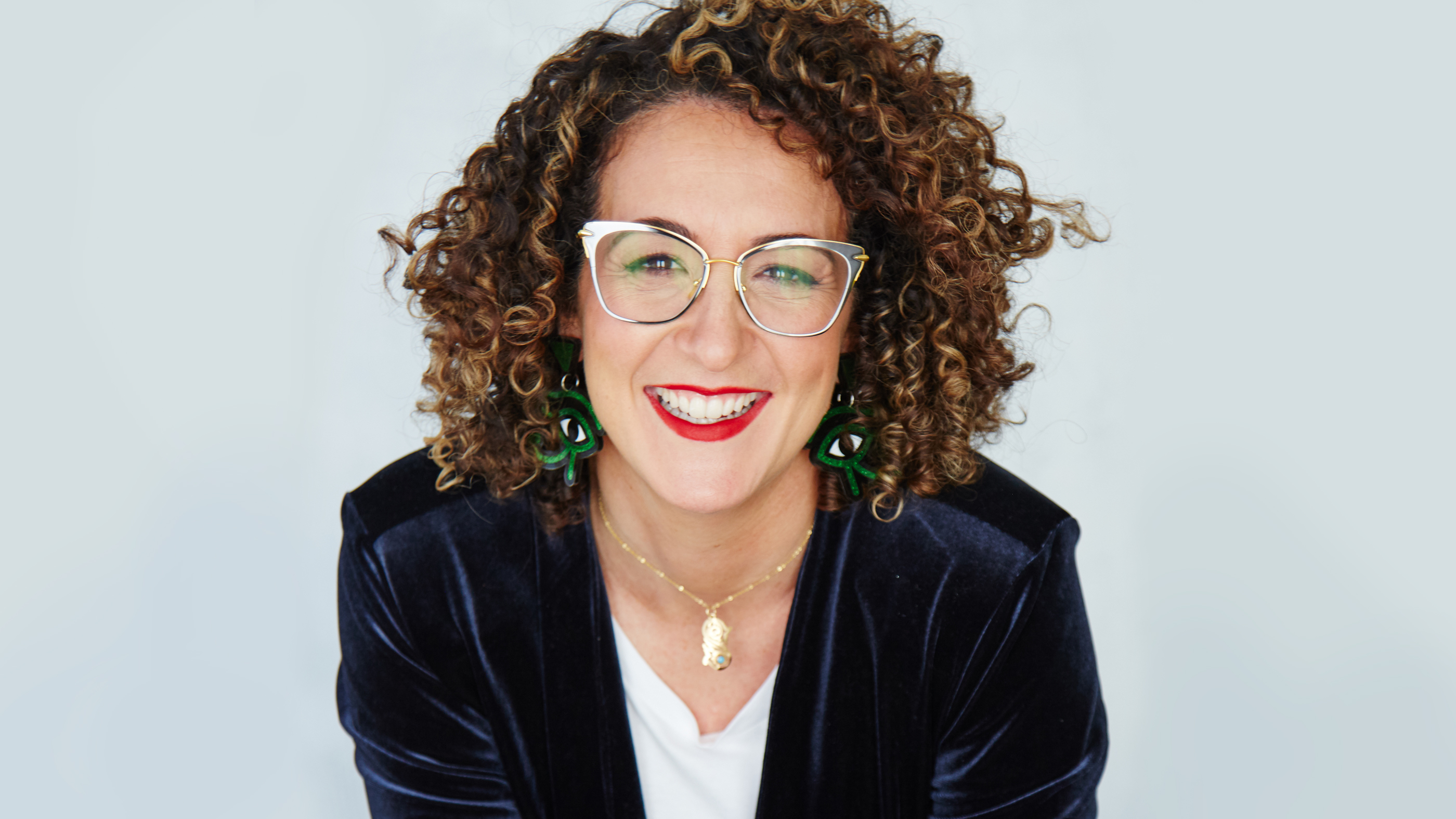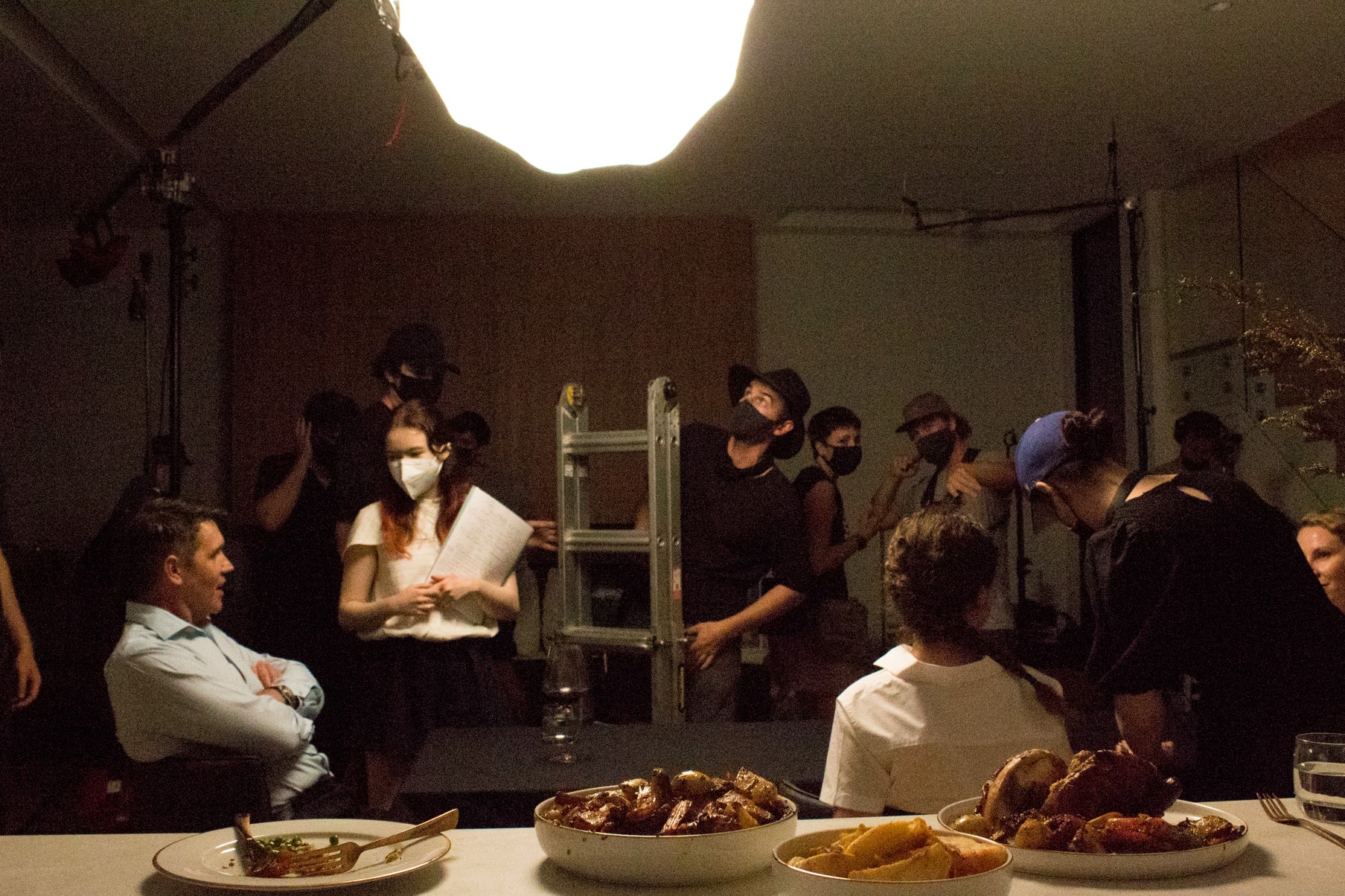Sarah Bassiuoni on creating Critical Incident and building her career as a screenwriter

Sydney-based writer and director Sarah Bassiuoni started her professional career as a human rights lawyer before a conversation with a junior lawyer led to a mid-career change where she applied for a screenwriting course, and she hasn’t looked back since. Now with an impressive list of screen credits under her belt, including Ladies In Black, The Heights and House of Gods, she returns with Critical Incident, which she created and co-wrote.
Set in Western Sydney and produced by Matchbox Pictures, Critical Incident is a contemporary six-part crime drama. Sarah drew on her life experience to create this captivating series, which is now streaming on Stan and is financed with support from Screen NSW.
Screen NSW spoke with Sarah to discuss the making of Critical Incident, representing Western Sydney on screen and authenticity in the screen industry, and how she navigated a mid-career to become one of the most in-demand filmmakers working today.
Firstly, can you tell us a little bit about Critical Incident?
Critical Incident is a story not only about what it means to police, but what it means to be policed. It is a story about the difficulties of being a police officer while also showing the reality of being a police target. Hopefully, everyone finds it to be an entertaining, emotional and action-packed ride as it portrays the fallout of making a big mistake which has even bigger consequences.
Critical Incident is a psychological crime thriller. This genre is hugely popular at the moment. What did you most enjoy about creating a TV show of this kind and why do you think it is so popular with audiences?
Well, I used to be a lawyer, so I enjoy absolutely everything about making TV. It is way more enthralling.
I’m serious; at every stage of a TV show coming to life, there are things to love. The development stage - working in the writers’ room developing possibilities and dreaming big with other story brains is a blast. Production – the mania but the new ideas and zest that the crew and cast bring to the scripts is awesome and seeing words on a page being brought to life is a brilliant ride to be involved in. And post – is just a real joy. Putting the puzzle together, pulling it apart and reassembling it is really fun.
I’m not sure why psychological crime thrillers are so popular at the moment, but I’m guessing it’s because we humans are obsessed with understanding why someone does a thing, and these kinds of shows dig into the ‘why?’ However, I write TV that I’d like to watch, and I love flawed characters who make snap decisions that turn out to be bad choices and then I love to see how far those characters will go to get away from the consequences they should face. So that’s how I approach writing.
Critical Incident has such a strong ensemble cast, including Akshay Khanna, Zoë Boe and Hunter Page-Lochard. Can you tell us a bit about the casting process?
We were led by the setting, Western Sydney, which is inherently diverse, and the casting followed that. Our Casting Director Allison Meadows was perfect for the task having cast so many shows set out in Western Sydney, she knew the area, understands the story world, and went to uni in Western Sydney herself.
For Zil, we were fortunate enough to have a rich pool of national and global talent to explore. We had to ensure we found an actor who could convey the competing emotions Zil carries throughout the season, and when it came down to it, we landed on a British actor, the wonderful Akshay Khanna.
For Dalia, we auditioned a very wide age range as it’s such a tricky and complex role requiring a very sensitive, highly intelligent and incredibly nimble actor, and we found Zoë Boe after an extensive casting exercise. We also undertook a national search to for Hayden and similarly to our experience with Akshay and Zoë as soon as we saw Jai, we knew we had the right actor.
For Ty we wanted an unexpected, yet visceral threat and we loved the idea of Hunter playing such a villain. We spoke with him and discussed the challenges and opportunities such a character could present. Hunter relished the prospect.
Critical Incident is a story set in and shot in Western Sydney, and showcases the importance of authentic representation on and off screen. What more do you think can be done to see make authentic stories like Critical Incident for film and tv?
Specificity gives a story authenticity. Authentic stories that are character-driven and plot rich are what audiences want. I believe we, therefore, need to do all we can to craft specific stories with a universal heart. There is no one way of achieving that but we can:
- Continue to look at ways to increase inclusivity in writers’ rooms and across development so that writers can hone their craft and be given that first elusive script to write. We need more mentoring and stable long-term contracting. On our writing team, three out of the four writers received their first one-hour drama credit, which is very unusual.
- Continue to do colour blind casting and see diverse cast in lead roles, not just in support roles. Let’s build up the next gen of TV stars that are more reflective of Australia.
- We need shows that show all sides of Sydney, not just the beaches and Harbour Bridge, because after all, most of Sydney’s population live in Western Sydney. I’ve heard it’s the third largest economy in Australia. It’s growing exponentially.
- We need commissioners to be as bold and foresighted as Stan.
As mentioned, you were a human rights lawyer previously, and now you’ve worked on many celebrated Australian TV shows including The Heights, House of Gods and Ladies In Black. Could you tell us a bit about what made you decide to change careers and how you built your incredibly impressive career in writing and directing?
Early in my legal career, I made a deal with myself that I would leave if I became cynical about the law and one day I had a conversation with a junior lawyer that made me realise my cynicism about the law was quite high. I applied to a screenwriting course as soon as I got home from work.
I did a part-time screenwriting course while working and I loved it. The next year I got into Australian Film Television and Radio School (AFTRS), after getting rejected the previous year. I was in a privileged position of being able to back myself and change careers and that’s what I did.
As for building a career, hard work and persistence are key. My screenwriting teacher was very supportive and encouraging. He gave me an introduction which got me my first note-taking job. He also said to read as many scripts as possible, so I read a script a day throughout the first four years of my career. I highly recommend doing that to anybody who wants to be a screenwriter. It helps you find your taste and voice.
I also worked as an intern while studying and did a lot of research and note-taking for some of Australia’s best screenwriters. Our senior writers were always open about their processes and being in writers’ rooms gave me great insight into writing and development as well as being fun. I wrote and re-wrote sample scripts so when opportunities arose, I was able to take them and show the scripts I had written to producers and agents. I signed with my agent, and I got a break to be a trainee script editor on The Heights. The creator and writing staff on The Heights were incredible teachers and supporters – who became mates who I admire greatly. They all are creating and writing a wonderful array of TV shows. My agent, Kathryn Fleming, has also been incredibly supportive and does the strategic planning. I try to stay focused on the work and writing things I’d enjoy as a viewer and, so far, I’ve stayed employed which is fabulous!
What’s next for you?
What’s next depends on the magical merry-go-round of development. Currently, I’m working on my own original slate and projects brought to me to create. I love writing, so I’m very grateful to be in the position to do it every day. I just want to continue to create exciting stories that resonate with the largest audience.

